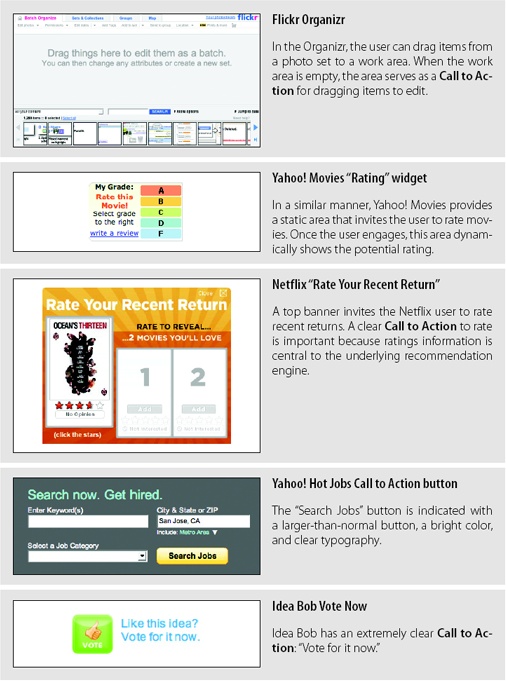Chapter 9. Static Invitations
By providing cues for interaction directly on the page we can statically indicate to the user the expected interface behavior. Static Invitations provide cues directly on the page. There are two broad patterns of Static Invitations:
- Call to Action Invitation
Invite users to primary task or tasks.
- Tour Invitation
Invite users to explore new features.
Call to Action Invitation
Both Yahoo! Answers and Discover card provide a simple 1-2-3 step explanation of their site (Figure 9-1). These clear steps provide a Call to Action Invitation. For Yahoo! the individual calls to action are ask, answer, or discover.


Call to Action Invitations are generally provided as static instructions on the page. But visually they can be provided in many different ways (Figure 9-2).

Considerations
There are some issues to keep in mind when using a Call to Action Invitation.
Visual noise
The problem of course with a Call to Action Invitation is that it competes with ...
Get Designing Web Interfaces now with the O’Reilly learning platform.
O’Reilly members experience books, live events, courses curated by job role, and more from O’Reilly and nearly 200 top publishers.

